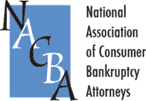
If you are considering filing for bankruptcy in California, you may be concerned that you will lose your home, vehicles, and even your cell phone. Applicants who file for bankruptcy can claim a certain number of exemptions. In other words, when you file for bankruptcy, you will not be expected to surrender all of your property and assets during the process. Bankruptcy exemptions allow a debtor to keep property they otherwise had to sell to pay creditors. A bankruptcy attorney can help you determine which exemptions will benefit you the most in your case.
Chapter 7 vs. Chapter 13 Exemptions
Before we delve into the different types of bankruptcy exemptions, it is important to understand the differences between Chapter 7 and Chapter 13 bankruptcies. These are the two most common forms of bankruptcy, and the exemption process is different for each of them. In a Chapter 7 bankruptcy, the applicant must liquidate all their assets and property to pay off their debt. In a Chapter 13 Bankruptcy, the individual can create a repayment plan and make monthly payments to the bankruptcy trustee overseeing their case. They can maintain their property and assets while they make payments.
Chapter 7 bankruptcies are ideal for people who cannot make monthly payments to repay their debt. However, your home, vehicles, and other property are subject to seizure by creditors for repayment. Chapter 7 exemptions protect property by keeping it out of the liquidation process. The amount of property you can exempt in a Chapter 7 bankruptcy is based on multiple factors, including the magnitude of debt you owe and the property’s value.
In a Chapter 13 bankruptcy, exemptions play a different but equally important role. You will be able to keep your property and assets in a Chapter 13 bankruptcy. Exemptions serve to protect the value of certain pieces of property from being included in your total repayment amount. Exemptions will allow you to pay off a lower amount than you would have otherwise. These exemptions help make monthly payments more manageable.
California Residency Requirements for Exemptions
To file for bankruptcy in California and use California exemptions, you will need to meet the residency requirements. You will need to show that you have lived in California continuously for at least two years before you submitted your petition for bankruptcy. If you have lived in more than one state during the previous two years, we recommend discussing your case with a bankruptcy attorney to learn how you can maximize your exemptions.
Federal Exemptions Not Allowed in California
There are numerous differences between California and federal exemptions. Some states allow others to choose between using federal or state exemptions. In California, you are required to only use state exemptions. You do not have the option to use federal exemptions, even if you wanted to. California does allow debtors to choose between two different types of exemptions, however.
California Bankruptcy Exemptions
California is the only state that offers bankruptcy filers two different sets of exemptions. You can only choose one set, however. The first set is called the “904 Exemptions,” and are usually beneficial for those who have significant home equity. The second set is called the “703 Exemptions.” The 703 Exemptions give applicants a “wildcard exemption.” If you do not own any real property, or you do not have significant home equity, the wild-card exemption will probably be more beneficial for you.
In this case, property will generally be exempt up to a certain dollar amount. Some states allow a married couple who filed jointly for bankruptcy to double their exemption amounts. Unfortunately, in California, spouses usually cannot double bankruptcy exemptions, but there are a few exceptions you can discuss with your attorney.
Homestead Exemption
The homestead exemption is available under the 704 Exemptions. Debtors can protect from $300,000 to $600,000 of equity in their home, depending on the location of their home. Previously, the homestead exemption had a baseline of $75,000. Under a new law, passed in 2020, the exemption has been increased to $300,000. The exemption can be as high as $600,000 when the median sale price of homes in the county in which the house is located is high. The exemption amount can also be adjusted every year for inflation.
Motor Vehicle Exemption
An individual can exempt up to $3,325, combined, for all vehicles.
Household Furnishings, Apparent, and Personal Effects
Household furnishings, apparel, or personal effects are exempt when they are “ordinarily and reasonably necessary to, and personally used or procured for use by, the judgment debtor and members of the judgment debtor’s family at the judgment debtor’s principal place of residence.”
When an item does not meet that standard because it is not ordinarily found in a household or has extraordinary value, the debtor may not exempt it. For example, if the debtor has an antique writing desk valued at $50,000, he or she would not be able to exempt that item. However, if the desk is a family heirloom, the debtor could be exempt from $8,725. Similarly, if a debtor has a television and gaming system worth tens of thousands of dollars, that system would probably not be exempt.
Pensions
Lawmakers understand how important it is for people to provide for themselves and retirement. For that reason, public and private retirement accounts, pensions, and annuities are exempt from bankruptcy. Likewise, life insurance policies that have not matured are entirely exempt. The loan value of these policies is only exempt up to $13,975.
Wildcard Exemption
Anything that does not fit into another exemption category or exceeds the maximum exemption amount in that category can be exempted through the wild card exemption. The wildcard exemption is up to $1,550, plus any unused homestead exemption amount, adding up to $30,825 for single debtors.









